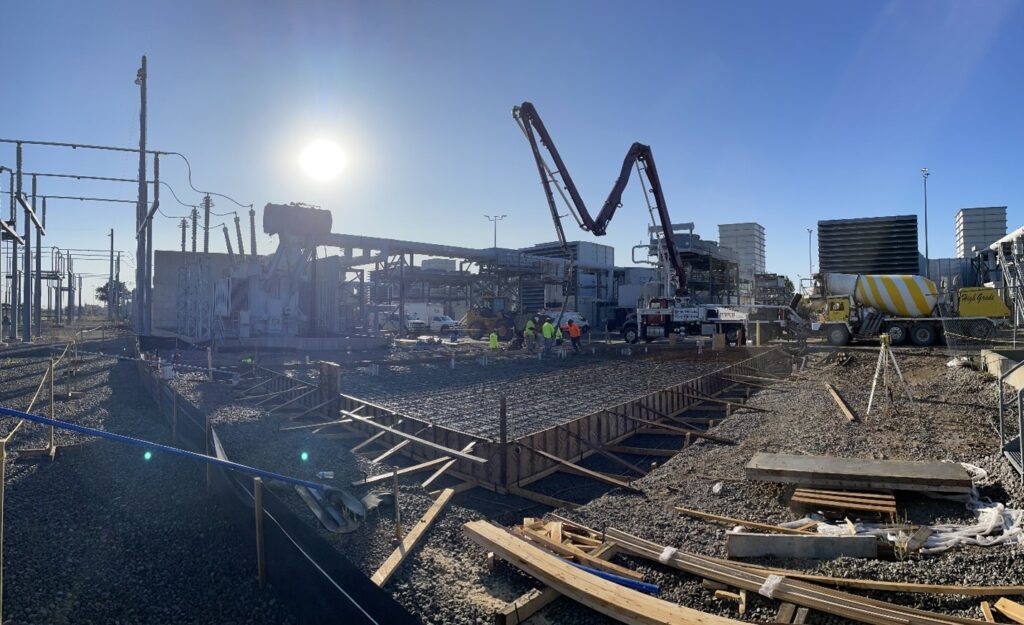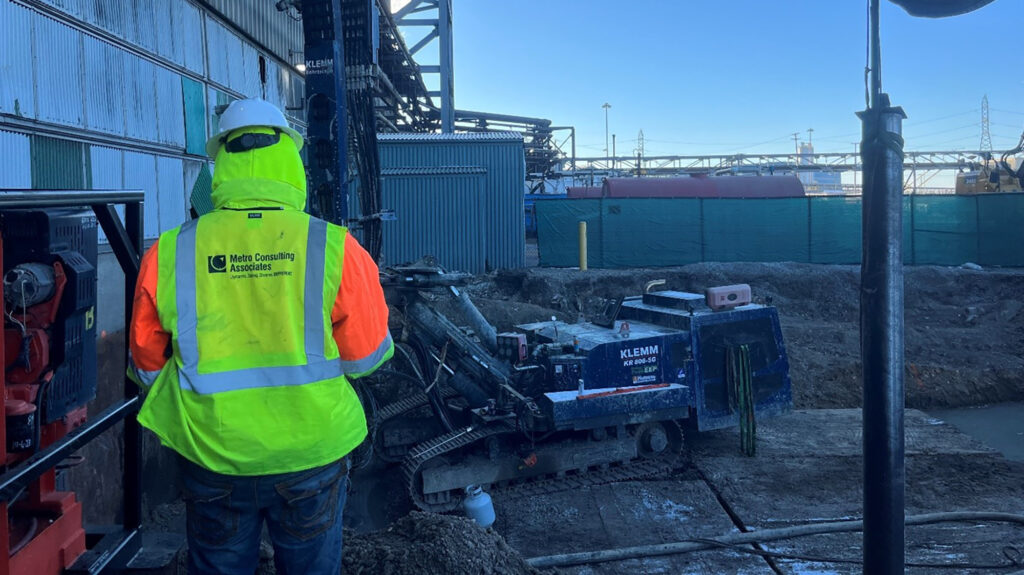Construction materials testing (CMT) involves more than concrete pours and soil density checks. The field extends to a diverse range of specialized inspections conducted on-site and in the laboratory, ranging from complex geotechnical analyses to evaluations of structural steel, masonry, and field-applied fire-resistant materials.
Together, these evaluations play a critical role in evaluating the stability and strength of a structure, from the soil it stands on, to the bricks or concrete that form it, to the mortar and steel that bind it all together.
This comprehensive approach to CMT helps guarantee that every element of a construction project—below ground and above ground—meets the required standards for safety, durability, and performance.
Phase 1: Site & Subgrade Preparation
Before construction begins above ground, the site and subgrade are prepared via site clearing, excavation, soil testing, and subgrade preparation for stability. As the base for future foundation construction, CMT assessments during this phase are essential for preventing costly issues like water intrusion, structural failure, or excessive settlement.
More specifically, these evaluations ensure:
- Soil stability and bearing capacity
- Proper foundation design and performance
- Groundwater management
- Structural integrity of foundation walls and slabs
- Compliance with local building codes and standards
- Prevention of settlement and structural damage
- Safe excavation practices
Below is a summary of CMT assessments commonly applied during this construction phase:
| CMT Field Assessments | CMT Lab Assessments |
|---|---|
| Soil Testing – Soil stabilization – Soils density – Surface bearing strength – Proof roll | Soil Testing – Organic impurities – Atterberg limits – Sieve analysis – Soils classification – Standard/modified proctor – Flex wall permeability |

Phase 2: Foundation Construction
Once the project site is prepped, construction begins on the foundation elements, including footings, piers, walls, and initial utilities. The foundation serves as the critical base for the structure. As such, CMT objectives during this phase help prevent foundation failures, settlement issues, and structural damage.
In particular, these assessments ensure:
- Proper soil compaction and preparation
- Accurate concrete mix design and strength
- Correct reinforcement placement and coverage
- Adequate curing conditions for concrete
- Foundation depth and dimensions meet design specifications
- Compliance with load-bearing requirements
- Detection of potential weak points or defects
- Adherence to local building codes and standards
- Long-term stability and durability of the structure
The following includes a summary of materials testing commonly applied during foundation construction:
| CMT Field Assessments | CMT Lab Assessments |
|---|---|
| Concrete – Slump – Air content – Temperature – Unit weights – Concrete strength Concrete Mix Design Submittals Asphalt Testing – Density testing – Certified hot mix sampling | Concrete – Concrete compression – Core compression – Beam flexural strength – Mortar and grout testing – Trial batching Asphalt: density of cores Aggregate – Sieve/loss by wash – Clay lumps and friable particle – Fractured particles – Flat and elongated – Specific gravity – Unit weight – Standard/modified proctor – Oversized particle correction – Sodium soundness |

Phase 3: Vertical Build
During this phase, the construction team prepares for and carries out the vertical construction on the site. In this case, CMT assessments help prevent construction delays, ensure structural integrity, and reduce the risk of costly errors or rework during the vertical build phase.
These tests provide crucial data for project managers and engineers to make informed decisions as construction progresses upward, such as:
- Accurate placement of anchor bolts and embedments
- Correct concrete mix designs for vertical elements
- Proper welding procedures and quality
- Adequate compressive strength of concrete and grout
- Correct installation of reinforcement in concrete and masonry
- Compliance with structural plans and specifications
- Adherence to building codes and industry standards
- Readiness of the structure for vertical loads
Below is an overview of typical material tests conducted throughout the vertical construction process:
| CMT Field Assessments | CMT Lab Assessments |
|---|---|
| Concrete Testing – Mortar proportion testing – Cubes and cylinder casting – Flexural strength or beam testing Floor Flatness Asphalt & Concrete Coring/Sampling Pull Testing Structural Steel Evaluation Spray Applied Fireproof | Concrete Testing – Mortar proportion testing – Cylinder/grout compressive strength – Grout prism compressive strength – Grout cube’s compressive strength |
See our CMT know-how in action.
Featured Project
Morrow Energy Plant
Our CMT professionals provided field and laboratory materials testing, including concrete and density testing, and special inspections to evaluate bearing soils and reinforcing steel on…
Certified Results by Certified Professionals
Keep in mind, the quality of your CMT reporting is only as good as the team performing the work. Having CMT-certified staff on site and in the lab is critical to ensuring project quality and long-term structural integrity.
While tempting, cutting costs using untrained personnel or the lowest bidder often leads to costly mistakes and oversights. Specialized CMT professionals bring expertise in proper sampling techniques, test procedures, and result interpretation, catching potential issues early. Their specialized knowledge ensures compliance with industry standards, such as ASTM and AISC, and contributes to safer, more durable structures.
Build with Confidence
Our certified CMT professionals ensure that construction quality meets design specifications through comprehensive field testing capabilities and AASHTO-accredited lab services. Our pros arrive on time and stay until completion, respecting your schedule. Let’s talk about how our expert testing can safeguard your investment.


